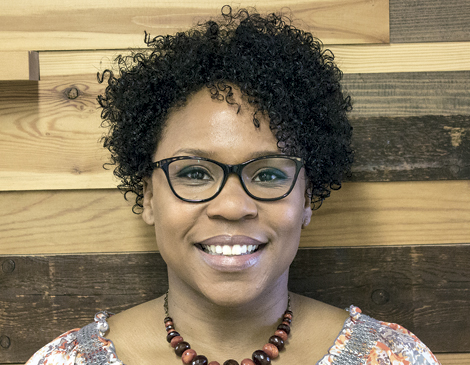MORE THAN 10 YEARS AGO, Erika Anthony learned that hesitation doesn’t always leave one lost.
Anthony had graduated from Penn State University in 2001 with a psychology degree and had applied to seven or eight law schools. A legal career made sense. At the time, she was a trial preparation assistant in the Manhattan District Attorney’s Office.
But something — an undefined internal check — was holding her back from law school.
“I talked to a mentor about what I wanted to do,” says Anthony, 38. “She suggested a career in policy and public administration, but I didn’t know much about it.”
Anthony did her research and learned that public servants and policymakers help people differently than lawyers. She realized why the legal profession wasn’t for her after she left the district attorney’s office when she was a court advocate working directly with clients — law would have left her feeling that a different path would be more effective.
“I wanted to bring everyone home and make their lives better,” Anthony says. “I had to decide that my skills and value were not in practicing law but in the systems that help those people.”
Today, Anthony is part of that people-helping system. She’s with Cleveland Neighborhood Progress, a nonprofit that aims to revitalize Cleveland neighborhoods. The group, funded by local foundations, awards grants to Cleveland community development corporations, which use the money for economic development projects.
As vice president of government relations and strategy at Cleveland Neighborhood Progress, Anthony lobbies local, state and federal governments for funding and legislation that benefit neighborhoods.
That’s especially weighty now because President Donald Trump has proposed significant cuts to the U.S. Department of Housing and Urban Development, which appropriates money to CDCs.
“I’ve been in Washington lobbying on Capitol Hill, letting them know how devastating the HUD cuts would be,” Anthony says. “I’ve been in Columbus asking the state for resources to support the expansion of our Community Financial Centers, which provide financial coaching and planning.”
Anthony, a Long Island native, first tasted advocacy during a Penn State internship at New York City’s Vera Institute of Justice, which works to improve the criminal justice system. She helped with a program that sent substance abusers convicted of low-level felonies to treatment instead of prison.
“Up until that point, I didn’t know anything like that existed,” Anthony says. “It was a mind-blowing summer. I came back my senior year with a passion for wanting to understand the criminal justice system.”
Anthony earned her master’s degree in public administration at Cleveland State University. Her first jobs were at Center for Families and Children, where she managed a pilot program that supported inmates returning to society, and Oriana House, which helps addicts in trouble.
“I have always recognized and acknowledged injustices, that people are disenfranchised in our community,” Anthony says. “We have to acknowledge that structural and institutional racism has led us to where we are. We can’t get past it until we acknowledge it. We can’t eradicate individual racism but we can eradicate institutional racism.”




